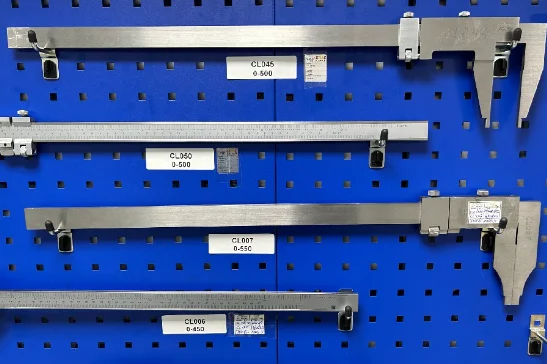Tools are essential in many industries, serving as the backbone for monitoring and controlling various systems. Special tools like measuring metres are crucial in ensuring safety, efficiency, and precision in manufacturing, transportation, or even residential applications. But what makes them so indispensable? Let’s explore their numerous benefits and why they are necessary in any system that demands accuracy and reliability.
Enhancing Safety with Precision Monitoring
One of the primary benefits of using gauges is enhancing safety through precise monitoring. Maintaining accurate pressure and temperature readings is critical in chemical processing, oil and gas, or even everyday boilers. These provide real-time data, allowing operators to make informed decisions to prevent dangerous situations like overpressure or overheating.
This real-time monitoring is not just about preventing accidents—it’s about ensuring the longevity and integrity of the entire system. Imagine a scenario where a pressure gauge malfunctions and fails to provide accurate readings. The consequences could be catastrophic, leading to equipment failure, environmental hazards, or even loss of life. These act as the first line of defence, alerting operators to potential issues before they escalate.
Ensuring Operational Efficiency
Operational efficiency is another significant benefit. Accurate data helps optimise the performance of various systems. Keeping systems running smoothly requires constant monitoring, whether in a manufacturing plant or a power station.
Gauges ensure that systems operate within their designated parameters, which helps maintain consistent output and reduce downtime. For instance, maintaining the correct pressure in hydraulic systems is vital in a manufacturing environment. These systems help monitor these pressures, ensuring that machinery operates efficiently without unnecessary wear and tear.
Facilitating Preventive Maintenance
These play a pivotal role by providing continuous monitoring of system conditions. With accurate data at their fingertips, maintenance teams can identify potential issues before they become serious problems. They also help spot trends, such as gradually increasing pressure or temperature, which could indicate a pending failure.
This proactive approach to maintenance allows companies to schedule repairs or part replacements during planned downtime rather than being forced to halt operations unexpectedly. The result is a more reliable and cost-effective maintenance strategy that keeps systems running smoothly.
Supporting Regulatory Compliance
Compliance with industry standards is not negotiable in most sectors. These tools provide the data needed to demonstrate safety and environmental regulations compliance. They ensure that systems operate within the limits of regulatory bodies, helping companies avoid penalties and ensuring safe operation. They also help monitor these conditions, providing documentation that can be used to prove compliance during audits or inspections.
Real-Time Decision Making
Nowadays, the ability to make real-time decisions is crucial. These provide the real-time data needed for quick decision-making, whether it’s adjusting a valve to regulate pressure or modifying a process to maintain product quality. They empower operators and engineers with the information they need to respond to changes immediately.
Consider a power plant scenario where the pressure in a steam boiler suddenly drops. These provide immediate feedback, allowing operators to take corrective action before the situation leads to a shutdown or worse. This ability to act quickly based on accurate data is invaluable in maintaining operational stability.
Ensuring Quality Control
Quality control is another area where these tools shine. In industries where product consistency is critical, such tools ensure that every product meets the required specifications. By monitoring variables like pressure, temperature, or flow rate, these tools help maintain the high standards of quality that customers expect. Such tools provide the necessary measurements to ensure that each part is manufactured to the exact standards, reducing the risk of defects and recalls.
Gauges might seem like simple devices. However, their impact on safety, efficiency, and quality is profound. Providing accurate, real-time data, they help maintain the delicate balance that keeps complex systems running smoothly. Whether it’s preventing accidents, optimising performance, or ensuring compliance, they make it all possible. Quality tools are an investment in any operation’s future success and reliability.

Karen Altizer is a seasoned professional with a wealth of expertise in marketing and communications, adept at crafting compelling narratives and strategic messages tailored to various stakeholders.

